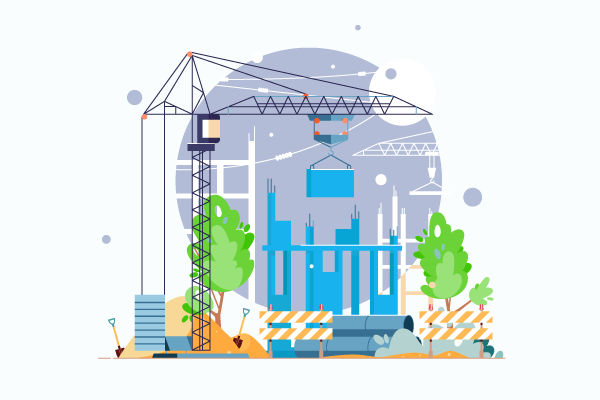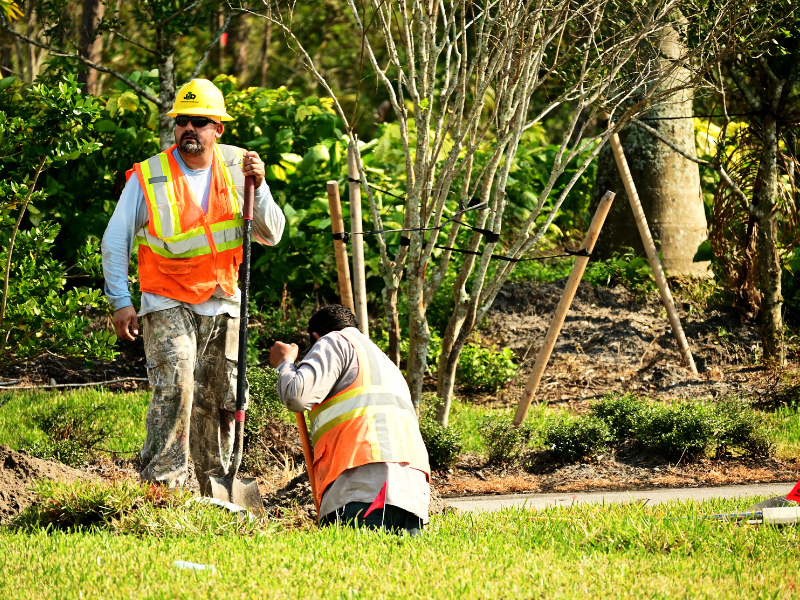Workers comp for Construction
Welcome to the world of construction, where the grandest visions take shape and transform into reality.
As a construction professional, you are no stranger to the challenges and risks that come with building and renovating structures.
From towering skyscrapers to intricate residential projects, construction work demands physical stamina, technical expertise, and a commitment to safety. However, despite your best efforts, accidents can still occur on construction sites, putting workers’ well-being at risk.
This is where workers’ compensation comes into play.
Workers’ compensation is a vital safety net for construction workers and employers, providing financial protection and support in the event of work-related injuries or illnesses. It ensures that injured workers receive proper medical care and compensation for lost wages, while also providing employers with a system to manage and address workplace accidents.
In this guide, we will explore the intricacies of workers’ compensation in the context of the construction industry. We will delve into the purpose and benefits of workers’ compensation, outlining the crucial role it plays in safeguarding the interests of both workers and employers.
Additionally, we will discuss the process of filing a workers’ compensation claim, the responsibilities of employers, and proactive measures that can be taken to prevent workplace accidents.
Whether you are a construction worker, a project manager, or a construction business owner, understanding workers’ compensation is paramount to ensuring the well-being of everyone involved in construction projects.
By familiarizing yourself with the information presented in this guide, you will be better equipped to navigate the complexities of workers’ compensation and create a safer and more secure work environment for all.
So, let’s embark on this journey into the realm of workers’ compensation for construction, where protection and support are the cornerstones of a thriving industry.
Various Aspects Of Workers Compensation Specific To The Construction Industry Include:
- High-Risk Nature of Construction Work: Construction sites are inherently hazardous environments, with risks such as falls, scaffolding accidents, electrocutions, and heavy machinery incidents. Workers’ compensation takes into account these unique risks associated with construction work.
- Coverage for Work-Related Injuries: Workers’ compensation provides coverage for a range of work-related injuries commonly seen in construction, including broken bones, sprains, strains, head injuries, back injuries, and occupational illnesses caused by exposure to hazardous substances.
- Medical Treatment and Rehabilitation: Workers’ compensation ensures that injured construction workers receive necessary medical treatment, including doctor visits, hospital stays, surgeries, medications, and rehabilitation services such as physical therapy.
- Wage Replacement Benefits: If a construction worker is unable to work due to a work-related injury or illness, workers’ compensation provides wage replacement benefits. These benefits typically cover a percentage of the worker’s average weekly wage during the recovery period.
- Vocational Rehabilitation: In cases where a construction worker’s injuries prevent them from returning to their previous job, workers compensation may offer vocational rehabilitation services to help the worker acquire new skills or find alternative employment within their capabilities.
- Death Benefits: If a construction worker loses their life due to a work-related incident, workers’ compensation provides death benefits to their dependents, including financial support for funeral expenses and ongoing financial assistance.
- Safety Incentives and Compliance: Workers’ compensation systems often provide incentives for construction companies that demonstrate a commitment to maintaining a safe work environment. This can include reduced premiums for companies with low accident rates and compliance with safety regulations.
- Reporting and Claims Process: Construction workers must promptly report any work-related injuries or illnesses to their employer, who is responsible for initiating the workers’ compensation claims process. This involves submitting the necessary paperwork and cooperating with the insurance carrier throughout the process.
- Employer Responsibilities: Construction employers have a legal duty to provide a safe working environment for their employees. This includes implementing safety protocols, providing adequate training, conducting regular safety inspections, and ensuring compliance with local, state, and federal regulations.
Proactive Safety Measures: Workers’ compensation in the construction industry emphasizes the importance of proactive safety measures, such as regular safety training, hazard assessments, proper use of personal protective equipment (PPE), and fostering a culture of safety among workers and management.
Construction Workers Comp
Workers comp for Construction projects can be complicated.
Understanding the different policies and regulations is key to managing a successful construction project.
To make sure you are in compliance, it’s important to review state laws for your specific area. Additionally, don’t forget to speak with one of our brokers about what type of coverage you may need for your project.
With the right plan in place, you can rest assured that your construction project is protected from unexpected costs, such as medical expenses or legal fees. Protecting yourself and everyone on the job site should be of utmost importance.
By being aware of the necessary guidelines for workers comp in Construction, you can guarantee a safe and successful workplace.




